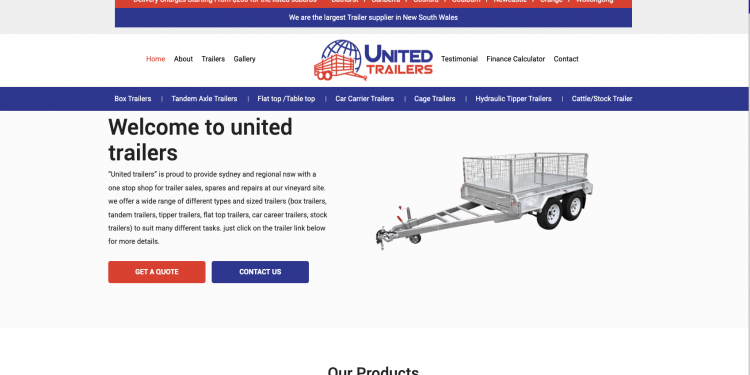Trailers are indispensable tools in various industries, serving as reliable means for transporting goods, equipment, and vehicles. In New South Wales, trailers play a vital role in construction, agriculture, logistics, and recreational activities. To ensure maximum efficiency and safety, it’s essential to optimise the performance of trailers. In this comprehensive guide, we’ll delve into the key factors for enhancing trailer performance, covering maintenance tips, load management strategies, and safety measures.
Understanding Trailers:
Trailers come in a diverse range of types and configurations to suit different purposes and applications in New South Wales. Whether it’s utility trailers for transporting landscaping materials, box trailers for hauling goods, or car trailers for towing vehicles, understanding the specific requirements of each type is crucial. By selecting the right trailer for the task at hand, users can optimise efficiency and minimise risks.
Maintenance Best Practices:
Regular maintenance is essential for ensuring the longevity and performance of trailers in New South Wales. This includes inspecting tires for wear and proper inflation, checking lights and brakes for functionality, and lubricating moving parts. Routine inspections should also cover the trailer’s frame, suspension, and hitch components to identify any signs of wear or damage. By addressing maintenance issues promptly, trailer owners can prevent costly breakdowns and ensure safe operation on New South Wales roads.
Load Management Strategies:
Efficient load management is key to optimising trailer performance and safety. Overloading trailers can lead to instability, increased fuel consumption, and excessive wear on components. It’s important to adhere to the manufacturer’s recommended load capacity and distribute weight evenly across the trailer. Additionally, securing cargo with proper tie-downs and ensuring proper weight distribution within the trailer are essential for safe towing on New South Wales highways.
Safety Measures:
Safety should always be a top priority when operating trailers in New South Wales. This includes adhering to speed limits, maintaining a safe following distance, and using proper signaling when changing lanes or turning. Trailer owners should also ensure that their vehicles are equipped with functioning safety features, such as brakes, lights, and reflective markings. Regular driver training and awareness of road conditions can further enhance safety while towing trailers in New South Wales.
Legal Compliance:
Trailers must comply with relevant regulations and requirements in New South Wales to ensure legal operation on public roads. This includes registration and licensing, as well as adherence to weight and dimension restrictions. Trailer owners should familiarise themselves with local laws and regulations governing trailer use and ensure that their equipment meets all applicable standards.
Conclusion:
Optimising the performance of trailers in New South Wales requires attention to detail, proactive maintenance, and adherence to safety protocols. By understanding the specific requirements of different trailer types, implementing regular maintenance practices, and prioritising safety measures, trailer owners can maximise efficiency and minimise risks on New South Wales roads. Whether it’s for commercial or recreational use, a well-maintained and properly operated trailer is essential for achieving optimal performance and ensuring safe transportation of goods and equipment across New South Wales.















